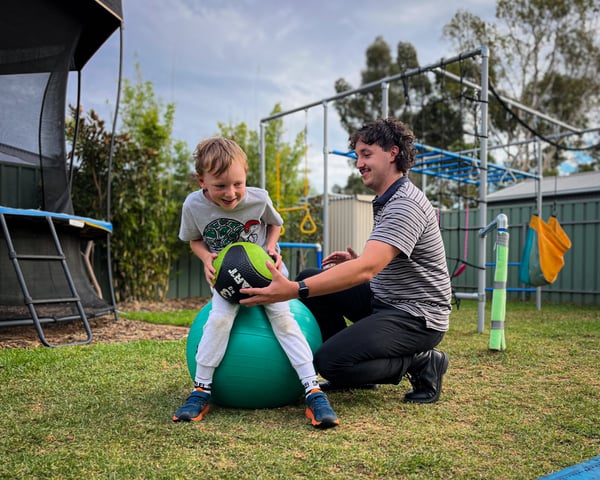An occupational therapy (OT) session with Hessel Group can vary widely based on the client's needs, the setting and the goals of therapy. However, there are some general components that many OT sessions may include:
-
Assessment or Re-evaluation: If it's the client's first session or if it's been some time since the last session, the occupational therapist may conduct an assessment. This can involve structured observations, standardised tests, interviews or specific tasks to understand the client's current level of function, challenges and strengths.
-
Goal Setting: Together, the therapist and the client (and sometimes family members) will establish specific, measurable goals. These goals are individualised and can range from improving hand strength to being able to cook a meal independently.
-
Therapeutic Activities: These are the heart of the OT session. The OT will guide the client through various tasks and activities designed to address their specific challenges. For instance, someone with hand weakness might engage in exercises using therapeutic putty, while a child with sensory issues might work on a sensory integration activity.
-
Education: OTs often educates the client and their family about the condition, strategies to manage it and ways to adapt tasks or environments. This component is crucial to ensure carryover of skills and strategies outside of therapy sessions.
-
Home Program Development: Often, the OT will provide recommendations or exercises for the client to practice at home. This helps to reinforce what's been learned in therapy and accelerates progress.
-
Adaptive Techniques and Equipment: The OT may introduce and train the client in using adaptive tools or equipment, like dressing aids, specialised utensils, or seating systems. This can also involve recommendations for home or workplace modifications.
-
Feedback and Discussion: The session usually ends with a feedback and discussion period where the OT and client review progress, address concerns and plan for future sessions.
-
Documentation: After the session, the therapist will document the client's progress, activities completed and any changes to the treatment plan. This is essential for tracking progress and ensuring continuity of care.
%20(1).jpg?width=600&height=400&name=Stock%20Photos%20(13)%20(1).jpg)
The content and flow of an OT session can differ based on various factors including the clinic setting (e.g., hospital, school, community), the client's age (e.g., paediatrics vs. geriatrics) and the therapist's area of expertise (e.g., hand therapy, neurorehabilitation, mental health). The overarching goal however, remains consistent: to enable individuals to participate in the activities of everyday life, fulfilling their roles and enjoying a meaningful life.
Hessel Group's OT services are conducted from our clinics in Welland, Fullarton, our client's homes or within the community. One of our client's favourite locations is our sensory room at Welland, the space is adaptable and can be used as a peaceful environment or using the sensory items within to stimulate positive feelings and the ability to focus on the task.

Contact our customer care team on 8462 0222 to discuss our OT services or complete this form and we will contact you.
%20(1).png)
